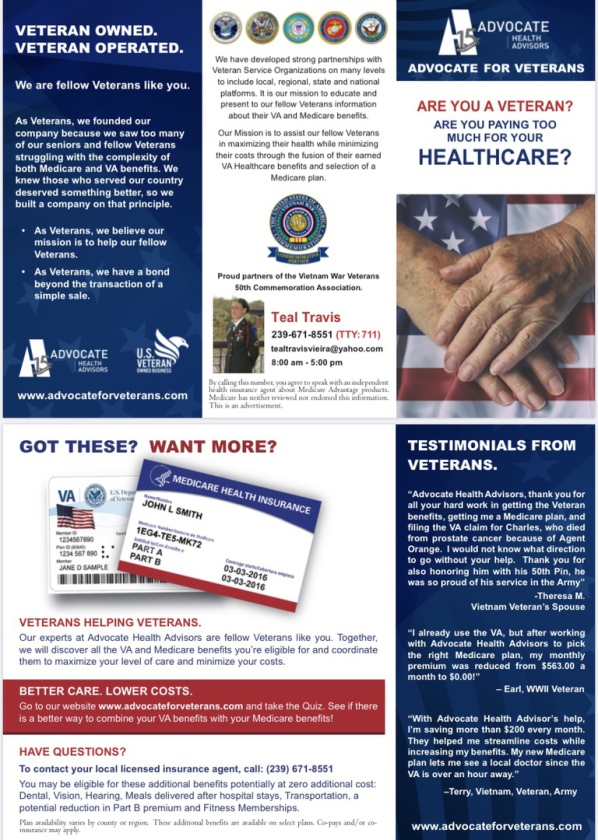You can use your GI
Bill benefits in many ways to advance your education and training. Find out how to use your benefits to earn a degree, train for a specific trade, or work toward other career
goals.
https://www.va.gov/education/about-gi-bill-benefits/how-to-use-benefits/
Sleep Deprivation Cripples Veterans Efforts to Recover From Military Career
Fact Sheet: Insomnia Treatment
Overview
Lifestyle changes often can help relieve acute (short-term) difficulty sleeping. These changes might make it easier to fall asleep and stay asleep. However,
lifestyle changes alone cannot cure chronic (ongoing) insomnia The most effective treatment for chronic (ongoing) insomnia is a specific type of counseling called cognitivebehavioral therapy for
insomnia (CBTi). It works by changing the thoughts and behaviors that maintain the cycle of insomnia. Several medicines also can help you sleep in the short term and re-establish a regular sleep
schedule. However, they cannot fix chronic insomnia. And if your insomnia is the symptom or side effect of another problem, it's important to treat the underlying cause (if possible).
Lifestyle Changes
If you have sleeping, avoid substances that make it worse, such as:
Caffeine, tobacco, and other stimulants. The effects of these substances can last as long as 8 hours.
Certain over-the-counter and prescription medicines that can disrupt sleep (for example, some cold and allergy medicines). Talk with your doctor about which
medicines won't disrupt your sleep.
Alcohol. An alcoholic drink before bedtime might make it easier for you to fall asleep. However, alcohol triggers sleep that tends to be lighter than normal. This
makes it more likely that you will wake up during the night. Try to adopt bedtime habits that make it easier to fall asleep and stay asleep. Follow a routine that helps you wind down and relax before
bed. For example, read a book, listen to soothing music, or take a hot bath. Try to schedule your daily exercise at least 5 to 6 hours before going to bed. Don't eat heavy meals or drink a lot before
bedtime. Make your bedroom sleep-friendly. Avoid bright lighting while winding down. Try to limit possible distractions, such as a TV, computer, or pet. Make sure the temperature of your bedroom is
cool and comfortable. Your bedroom also should be dark and quiet. Go to sleep around the same time each night and wake up around the same time each morning, even on weekends. If you can, avoid night
shifts, alternating schedules, or other things that may disrupt your sleep schedule.
www.VeteranTraining.va.gov/Insomnia
Cognitive-Behavioral Therapy for Insomnia (CBT-i)
CBT for insomnia targets the thoughts and actions that can disrupt sleep. This therapy encourages good sleep habits and uses several methods to relieve sleep
anxiety. For example, relaxation techniques and biofeedback are used to reduce anxiety. These strategies help you better control your breathing, heart rate, muscles, and mood. CBT-i also aims to
replace sleep anxiety with more positive thinking that links being in bed with being asleep. This method also teaches you what to do if you're unable to fall asleep within a reasonable time. CBT-i
also may involve talking with a therapist one-on-one or in group sessions to help you consider your thoughts and feelings about sleep. This method may encourage you to describe thoughts racing
through your mind in terms of how they look, feel, and sound. The goal is for your mind to settle down and stop racing. CBT-i also focuses on limiting the time you spend in bed while awake. This
method involves setting a sleep schedule. At first, you will limit your total time in bed to the typical short length of time you're usually asleep. This schedule might make you even more tired
because some of the allotted time in bed will be taken up by problems falling asleep. However, the resulting tiredness is intended to help you get to sleep more quickly. Over time, the length of time
spent in bed is increased until you get a full night of sleep.
Medicines
• Prescription Medications. Many prescription medicines are used to treat insomnia. Some are meant for short-term use, while others are meant for longer use. Talk to
your doctor about the benefits and side effects of insomnia medicines. For example, insomnia medicines can help you fall asleep, but you may feel groggy in the morning after taking them. Rare side
effects of these medicines include sleep eating, sleep walking, or driving while asleep. If you have side effects from an insomnia medicine, or if it doesn't work well, tell your doctor. He or she
might prescribe a different medicine. Some insomnia medicines can be habit forming. Ask your doctor about the benefits and risks of insomnia medicines.
• Over-the-counter Products Some over-the-counter (OTC) products claim to treat insomnia. These products include melatonin, Ltryptophan supplements, and valerian
teas or extracts. The Food and Drug Administration doesn't regulate “natural” products and some food supplements. Thus, the dose and purity of these substances can vary. How well these products work
and how safe they are isn't well understood. Some OTC products that contain antihistamines are sold as sleep aids. Although these products might make you sleepy, talk to your doctor before taking
them. These medications pose risks for some people. Also, these products may not offer the best treatment for your insomnia. Your doctor can advise you whether these products will benefit you.
www.VeteranTraining.va.gov/Insomnia
Is Medical Marijuana Recommended for Veterans?
Vincent sustained multiple injuries across his 27 years of
military service, including permanent nerve damage from the neck down, total reconstructive shoulder surgery and a post-traumatic stress disorder diagnosis.
He was put on multiple narcotics,
including Oxycontin. At one point he was taking up to 10 different medications for pain management alone. The medications combined later led to stage three kidney disease and a damaged liver, he
said.
https://www.military.com/daily-news/2019/07/27/military-veterans-and-medical-marijuana-combustible-mix.html




